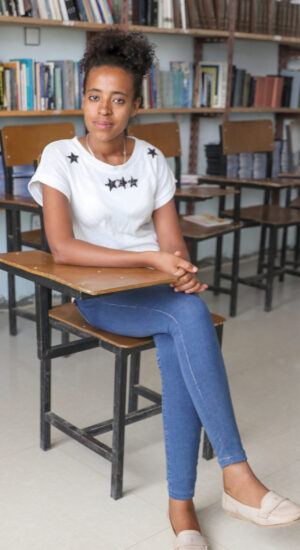“Are any of you evangelical Christians?”
Sesuna looked nervously around the room at the other high school seniors who had just arrived for their mandatory military training. She knew several of them attended evangelical churches, which had been illegal in Eritrea since Sesuna was a toddler, but no one was admitting it. Then the instructor, clad in traditional military fatigues, began to parrot the government’s explanation of why evangelicalism is wrong: “It is a belief system developed by the Americans to weaken Eritrea.”
As Sesuna began to rise to her feet, the girls around her tugged at her clothing, trying to pull her back down.
Her friends knew what happens to admitted followers of Christ in the isolated military camp.
All high school seniors in Eritrea spend their senior year at a training camp adjacent to the massive Sawa Defense Training Center on the border with Sudan. They live in poor conditions and are subjected to military discipline, forced labor and, most probably, sexual abuse. After six months at the training camp and another year of national service, students are assigned to either the civil service or indefinite military service. There are no other career choices. This compulsory service prompts thousands of Eritrean students to flee the country every year.
When the instructor called on her, Sesuna boldly stated, “I have a Bible, and I am a born-again Christian.”


